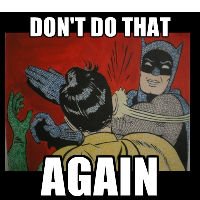Court Rules Democrats’ Prop. 30 Ballot Maneuver Was Unconstitutional

Governor Jerry Brown officially got away with one last November when the Democratic Party managed to get his tax-hike Proposition 30 placed at the top of the ballot, a coveted spot that probably contributed to its success.
Last Friday, the state Court of Appeal for the Third District released a ruling that took a dim view of the parliamentary maneuver used by the majority party in the Legislature. While the courts are often loath to interfere with the internal procedures of its co-equal branch of government, it made an exception in this case.
Democrats proposed legislation as part of the annual state budget bill that resulted in Prop. 30 going to the top of the ballot, using a method that fills in “blank” trailer bills after the primary budget bill has been passed. The budget bill, passed by majority vote, takes effect immediately.
If the Prop. 30 legislation had not been passed as part of the budget, it would have needed an unobtainable two-thirds vote in separate legislation to avoid a 90-day wait, and a key element of Brown’s budget-balancing act would have lost the ballot advantage.
The legislation that vaulted the proposition over other ballot measures was Assembly Bill 1499, which required that “bond measures and constitutional amendments, including those proposed by initiative, appear on the ballot before all other legislative, initiative, and referendum measures.”
The Howard Jarvis Taxpayers Association sued last July and wanted the court to temporarily block Secretary of State Debra Bowen, a Democrat, from putting Prop. 30 atop the ballot until the suit could be heard. No stay was issued. The group said the bill had nothing directly to do with the budget and shouldn’t have been included with the budget package. Democrats said the bill included a $1,000 expenditure, making it legal.
The appellate court chose not to address that issue, but its decision could be meaningful in the future. The panel ruled that the Legislature cannot pass trailer bills that are essentially empty vessels as part of a legislative package and then fill them with content at a later date. Even if the blank bills aren’t finished products, they must have some kind of identifying content, the court ruled.
The Legislature argued to the court that it’s too late for the court to do anything now, and it won’t be duplicating that stunt again. The court was not convinced and quoted the Jarvis plaintiffs to make their point:
“The Legislature fails to properly characterize the narrow, but dispositive, question before us. Properly understood, the constitutional issue we resolve is one that is ‘likely to recur . . . yet evade review’ and is ‘of continuing public interest.’ ”
–Ken Broder
To Learn More:
Court Ruling in Prop. 30 Case Limits Use of “Spot Bills” in Budget (by David Siders, Sacramento Bee)
Democrats Wrongly Placed Brown's Tax Plan at Top of Ballot, Court Says (by Chris Megerian, Los Angeles Times)
Howard Jarvis Taxpayers Association et al v. Secretary of State Debra Bowen (Court of Appeal Third District) (pdf)
California’s Budget Process (Department of Finance)
- Top Stories
- Controversies
- Where is the Money Going?
- California and the Nation
- Appointments and Resignations
- Unusual News
- Latest News
- California Forbids U.S. Immigration Agents from Pretending to be Police
- California Lawmakers Urged to Strip “Self-Dealing” Tax Board of Its Duties
- Big Oil’s Grip on California
- Santa Cruz Police See Homeland Security Betrayal in Use of Gang Roundup as Cover for Immigration Raid
- Oil Companies Face Deadline to Stop Polluting California Groundwater





